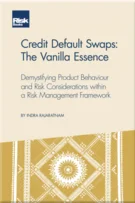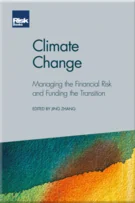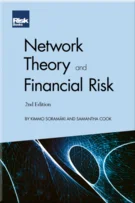How Much Economic Capital Could European Banks Save? The Case for Optimal Sovereign Risk Allocation
Carlo Capuano and Luigi Ruggerone
Preface: Two economists’ views on the bank-sovereign linkage
Introduction
Assessing Country Risk: A Practical Guide
Sovereign Risk: Characteristics, History and a Review of Recent Research
The Arab Spring: Insights for Political Risk Analysis
The Eurozone Crisis: The Forgotten Risks of Private and External Debt
How the Eurozone Crisis Became a Banking Crisis, and the Risk of Japanisation
The Changing Dynamics of Country Risk
Capital Flight as a Political Risk Indicator
Debt Crisis Indicators of Emerging Markets versus Eurozone Economies
How Much Economic Capital Could European Banks Save? The Case for Optimal Sovereign Risk Allocation
Fixing Fundamental Flaws in Probabilistic Country Risk Models
Have We Learned the Country Risk Management Lessons of the 1997 Asian Financial Crisis?
Using Systems Thinking to Enhance Country Risk Assessment
Approaches to the Quantification of Country Risk
Stress Testing Across International Exposures and Activities
In response to the global financial crisis, banks have become increasingly aware of the scarcity and cost of capital, and of the difficulties of granting an adequate remuneration to it,11On this, see Chapter 1 of IMF (2014). and have started to implement extensive projects aimed at optimising its utilisation. These processes are often very complex, as banks’ capital is subject to various regulatory and accountancy constraints that must be complied with – and which are, at times, silent about some aspects of commercial banks operations.
When it comes to optimising the allocation of sovereign risk exposure, it can be more useful to examine the concept of economic capital rather than that of regulatory capital.22The Basel Committee on Banking Supervision recognises that: “Several banks note the use of economic capital as another complementary view of a bank’s condition” (BIS, 2014a, p 4). There are several big multinational banks where exposures to sovereign risk have contributed extensively to generated revenues and overall risk exposure. However, sovereign risk is one of those areas where regulatory bodies appear to be less sharp (or more complacent) in driving banks’ regulatory
Copyright Infopro Digital Limited. All rights reserved.
As outlined in our terms and conditions, https://www.infopro-digital.com/terms-and-conditions/subscriptions/ (point 2.4), printing is limited to a single copy.
If you would like to purchase additional rights please email info@risk.net
Copyright Infopro Digital Limited. All rights reserved.
You may share this content using our article tools. As outlined in our terms and conditions, https://www.infopro-digital.com/terms-and-conditions/subscriptions/ (clause 2.4), an Authorised User may only make one copy of the materials for their own personal use. You must also comply with the restrictions in clause 2.5.
If you would like to purchase additional rights please email info@risk.net





